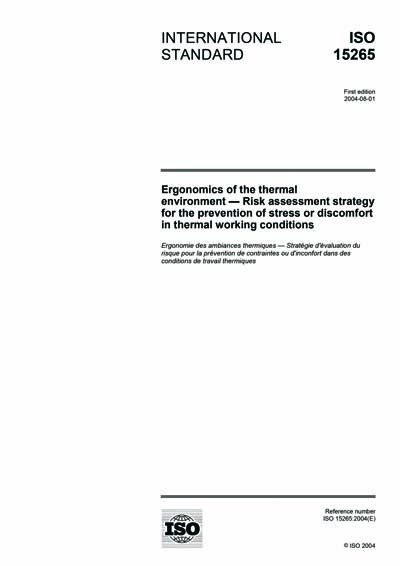Most recent
ISO 15265:2004
Ergonomics of the thermal environment - Risk assessment strategy for the prevention of stress or discomfort in thermal working conditions
ISO 15265:2004 describes a strategy for assessing and interpreting the risk of physiological constraints, or of discomfort, while working in a given climatic environment.
It is applicable in any working situation with steady or varying conditions of the climate, metabolic rate or clothing.
ISO 15265:2004 does not describe a single procedure, but a strategy in three stages that can be used successively to gain deeper insight in the working conditions, as it is needed to draw the most appropriate conclusions about the risk involved and identify the best control and prevention measures.
It is definitely oriented towards the prevention and/or control of these working problems in the heat or cold. The risk of heat or cold disorders and/or discomfort is therefore assessed only to the extent that it is required to reach this goal.
Content Provider
International Organization for Standardization [iso]






